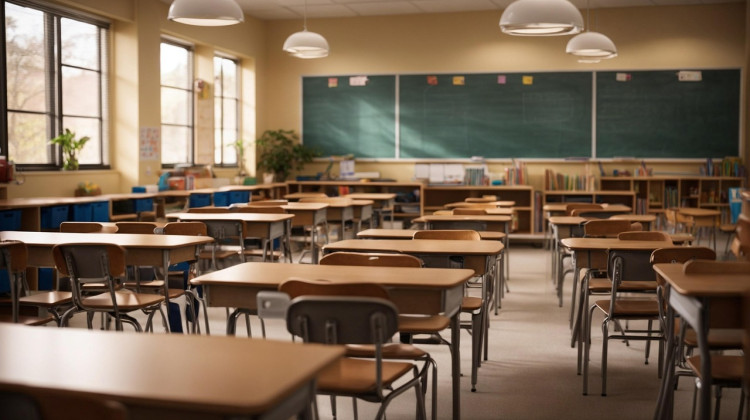
Lawmakers meet for an education-focused summer study committee meeting in the House chamber.
Jeanie Lindsay/IPB NewsIndiana’s governor will appoint the next leader of the state department of education in 2021, and that’s prompted lawmakers to consider merging three key state education groups to better align education policymaking and oversight power in the state.
Only a handful of states don’t have a state board of education, including Minnesota and Wisconsin, and House Education Committee Chair Bob Behning (R-Indianapolis) proposed an idea this week that would nix Indiana’s.
Instead, he suggests fusing the state board (SBOE) with the Commission for Higher Education (CHE) and Governor’s Workforce Cabinet (GWC). The three would work under a more streamlined group, what he calls the Commission for Lifelong Learning, similar to the state’s former Education Roundtable.
“They would report then to this commission on lifelong learning so that this focus would always be kept in mind,” he says.
Indiana’s SBOE manages a significant number of school issues, including accountability grades, rulemaking for diplomas, virtual schools, graduation pathways, and school turnaround efforts.
Indiana’s current schools chief, Jennifer McCormick, has cited an unhealthy governance structure as a key reason she’s leaving the position after just one term.
Indiana is one of several states with an appointed board of education, and according to the National Association of State Boards of Education, many states have either a set of elected state board positions, an elected chief state school officer, or require the approval of lawmakers for appointed state board positions.
Sen. Victoria Spartz (R-Noblesville) says the state needs to rethink how it wants to run and oversee Hoosier schools. Spartz pressed for more attention on the governance structure of education with a bill during the last legislative session.
“I’m a huge believer the more centralized any governing, OK, you know, the more inefficient it’s going to be because one size never fits all,” Spartz says.
Lawmakers would have to consider several key pieces of how a new commission would work. Including things like what power the commission holds, how many members could be part of a new commission, and who would choose them. Right now, the SBOE, CHE, and GWC include more than 40 seats combined, mostly appointed by the governor.
Contact Jeanie at jlindsa@iu.edu or follow her on Twitter at @jeanjeanielindz.
 DONATE
DONATE







 Support WFYI. We can't do it without you.
Support WFYI. We can't do it without you.